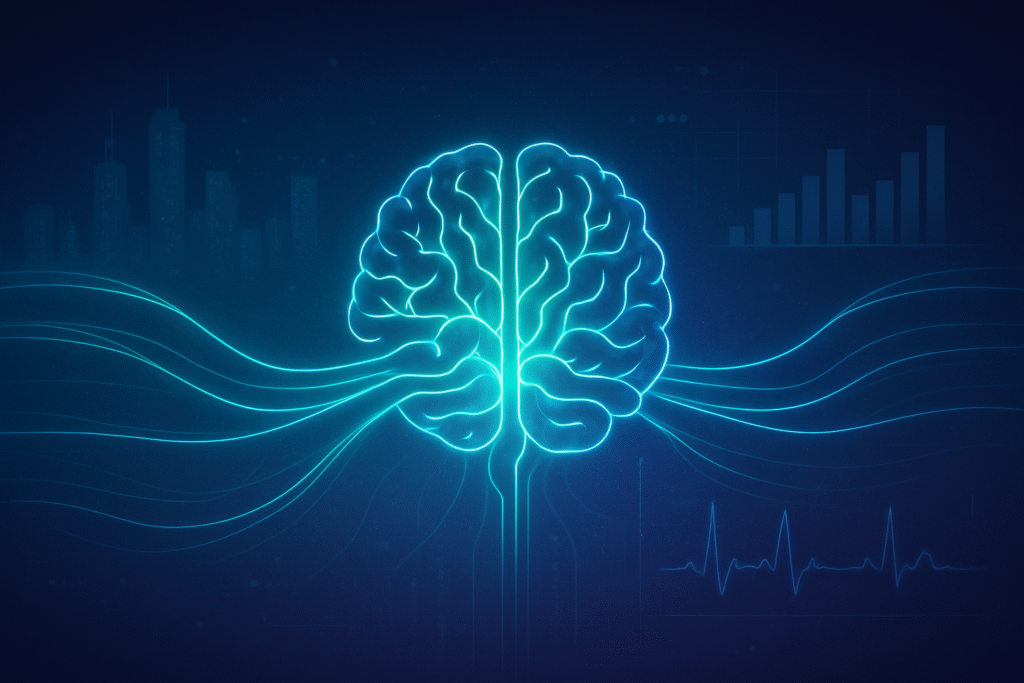
The Artificial Intelligence as a Service (AIaaS) market is experiencing an unprecedented surge, poised to become a cornerstone of technological innovation and business transformation. This cloud-based model, which delivers sophisticated AI capabilities on demand, is rapidly democratizing access to advanced intelligence, allowing businesses of all sizes to integrate machine learning, natural language processing, and computer vision without the prohibitive costs and complexities of in-house development. This paradigm shift is not merely a trend; it's a fundamental reorientation of how artificial intelligence is consumed, promising to redefine competitive landscapes and accelerate digital transformation across the Information Technology (IT) and Telecommunications (Telecom) sectors.
The immediate significance of AIaaS lies in its ability to level the technological playing field. It enables small and medium-sized enterprises (SMEs) to harness the power of AI that was once exclusive to tech giants, fostering innovation and enhancing competitiveness. By offering a pay-as-you-go model, AIaaS significantly reduces upfront investments and operational risks, allowing companies to experiment and scale AI solutions rapidly. This accessibility, coupled with continuous updates from providers, ensures businesses always have access to cutting-edge AI, freeing them to focus on core competencies rather than infrastructure management.
Technical Foundations and a New Era of AI Accessibility
AIaaS platforms are built upon a robust, scalable cloud infrastructure, leveraging the immense computational power, storage, and networking capabilities of providers like Amazon Web Services (AWS) (NASDAQ: AMZN), Microsoft Azure (NASDAQ: MSFT), and Google Cloud (NASDAQ: GOOGL). These platforms extensively utilize specialized hardware such as Graphics Processing Units (GPUs) and Tensor Processing Units (TPUs) to manage the computationally intensive demands of deep learning and other advanced AI tasks. A microservices architecture is increasingly common, enabling modular, scalable AI applications and simplifying deployment and maintenance. Robust data ingestion and management layers handle diverse data types, supported by distributed storage solutions and tools for data preparation and processing.
The technical capabilities offered via AIaaS are vast and accessible through Application Programming Interfaces (APIs) and Software Development Kits (SDKs). These include comprehensive Machine Learning (ML) and Deep Learning frameworks, pre-trained models for various tasks that can be fine-tuned, and Automated Machine Learning (AutoML) tools to simplify model building. Natural Language Processing (NLP) services cover sentiment analysis, text generation, and language translation, while Computer Vision capabilities extend to image classification, object detection, and facial recognition. Predictive analytics, data analytics, speech recognition, and even code generation are all part of the growing AIaaS portfolio. Crucially, many platforms feature no-code/low-code environments, making AI implementation feasible even for users with limited technical skills.
AIaaS fundamentally differs from previous AI approaches. Unlike traditional on-premise AI deployments, which demand substantial upfront investments in hardware, software, and specialized personnel, AIaaS offers a cost-effective, pay-as-you-go model. This eliminates the burden of infrastructure management, as providers handle all underlying complexities, ensuring services are always available, up-to-date, and scalable. This leads to significantly faster deployment times, reducing the time from concept to deployment from months to days or weeks. Furthermore, while Software as a Service (SaaS) provides access to software tools, AIaaS offers learning systems that analyze data, generate insights, automate complex tasks, and improve over time, representing a deeper level of intelligence as a service. The AI research community and industry experts have largely embraced AIaaS, recognizing its role in democratizing AI and accelerating innovation, though concerns around data privacy, ethical AI, vendor lock-in, and the "black box" problem of some models remain active areas of discussion and development.
Competitive Dynamics and Market Disruption
The rise of AIaaS is creating significant shifts in the competitive landscape, benefiting both the providers of these services and the businesses that adopt them. Major tech giants with established cloud infrastructures are leading the charge. Google Cloud AI, Microsoft Azure AI, and Amazon Web Services (AWS) are at the forefront, leveraging their vast client bases, extensive data resources, and continuous R&D investments to offer comprehensive suites of AI and ML solutions. Companies like IBM (NYSE: IBM) with Watson, and Salesforce (NYSE: CRM) with Einstein, integrate AI capabilities into their enterprise platforms, targeting specific industry verticals. Specialized providers such as DataRobot and Clarifai also carve out niches with automated ML development and computer vision solutions, respectively.
For businesses adopting AIaaS, the advantages are transformative. Small and medium-sized enterprises (SMEs) gain access to advanced tools, enabling them to compete effectively with larger corporations without the need for massive capital expenditure or in-house AI expertise. Large enterprises utilize AIaaS for sophisticated analytics, process optimization, and accelerated digital transformation. Industries like Banking, Financial Services, and Insurance (BFSI) leverage AIaaS for fraud detection, risk management, and personalized customer experiences. Retail and E-commerce benefit from personalized recommendations and optimized product distribution, while Healthcare uses AIaaS for diagnostics, patient monitoring, and treatment planning. Manufacturing integrates AI for smart factory practices and supply chain optimization.
AIaaS is a significant disruptive force, fundamentally altering how software is developed, delivered, and consumed. It is driving the "AI Disruption in SaaS," lowering the barrier to entry for new SaaS products by automating development tasks and commoditizing core AI features, intensifying pricing pressures. The automation enabled by AIaaS extends across industries, from data entry to customer service, freeing human capital for more strategic tasks. This accelerates product innovation and reduces time-to-market. The shift reinforces cloud-first strategies and is paving the way for "Agentic AI," which can take initiative and solve complex workflow problems autonomously. While major players dominate, the focus on specialized, customizable solutions and seamless integration is crucial for competitive differentiation, as is the ability to leverage proprietary datasets for training specialized AI models.
Wider Significance and the AI Evolution
AIaaS represents a pivotal moment in the broader AI landscape, democratizing access to capabilities that were once the exclusive domain of large research institutions and tech giants. It is a natural evolution, building upon decades of AI research and the maturation of cloud computing. This model transforms AI from a specialized research area into a widely accessible utility, deeply integrated with trends like vertical AI-as-a-Service, which delivers tailored solutions for specific industries, and the ongoing development of multimodal and agent-based AI systems. The global AIaaS market, with projections ranging from $105.04 billion to $269.4 billion by 2030-2033, underscores its profound economic and technological impact.
The wider impacts of AIaaS are multifaceted. It fosters accelerated innovation and productivity by providing ready-to-use AI models, allowing businesses to rapidly experiment and bring new products to market. Cost optimization and resource efficiency are significant, as organizations avoid hefty upfront investments and scale capabilities based on need. This enhances business operations across various departments, from customer service to data analysis. However, this transformative power also introduces concerns. Data privacy and security are paramount, as sensitive information is transferred to third-party providers, necessitating robust compliance with regulations like GDPR. Vendor lock-in, ethical considerations regarding bias in algorithms, and a potential lack of control over underlying models are also critical challenges that the industry must address.
Comparing AIaaS to previous AI milestones reveals its evolutionary nature. While earlier AI, such as expert systems in the 1980s, relied on handcrafted rules, AIaaS leverages sophisticated machine learning and deep learning models that learn from vast datasets. It builds upon the maturation of machine learning in the 1990s and 2000s, making these complex algorithms readily available as services rather than requiring extensive in-house expertise. Crucially, AIaaS democratizes deep learning breakthroughs, like the transformer models underpinning generative AI (e.g., OpenAI's ChatGPT and Google's Gemini), which previously demanded specialized hardware and deep expertise. This shift moves beyond simply integrating AI as a feature within software to establishing AI as a foundational infrastructure for new types of applications and agent-based systems, marking a significant leap from earlier AI advancements.
The Horizon: Future Developments and Expert Predictions
The future of AIaaS is characterized by rapid advancements, promising increasingly sophisticated, autonomous, and integrated AI capabilities. In the near term, we can expect deeper integration of AIaaS with other emerging technologies, such as the Internet of Things (IoT) and blockchain, leading to smarter, more secure, and interconnected systems. The trend towards "democratization of AI" will intensify, with more user-friendly, low-code/no-code platforms and highly customizable pre-trained models becoming standard. Vertical AIaaS, offering industry-specific solutions for sectors like healthcare and finance, will continue its strong growth, addressing nuanced challenges with tailored intelligence.
Looking further ahead, long-term developments point towards the proliferation of agent-based AI systems capable of managing complex, multi-step tasks with minimal human intervention. Expanded multimodality will become a standard feature, allowing AIaaS offerings to seamlessly process and integrate text, images, video, and audio. Significant improvements in AI reasoning capabilities, coupled with even greater personalization and customization of services, will redefine human-AI interaction. The integration of AI into edge computing will enable new applications with low latency and enhanced data protection, bringing AI closer to the source of data generation.
However, several challenges need to be addressed to realize the full potential of AIaaS. Data privacy and security remain paramount, demanding robust encryption, strict access controls, and adherence to evolving regulations. Integration complexities, particularly with legacy IT infrastructure, require innovative solutions. The risk of vendor lock-in and the need for greater control and customization over AI models are ongoing concerns. Furthermore, despite the ease of use, a persistent skills gap in AI expertise and data analysis within organizations needs to be overcome. Experts predict explosive market growth, with projections for the global AIaaS market reaching between $105.04 billion and $261.32 billion by 2030, driven by increasing AI adoption and continuous innovation. The competitive landscape will intensify, fostering faster innovation and potentially more accessible pricing. Spending on AI-optimized Infrastructure as a Service (IaaS) is also expected to more than double by 2026, with a significant portion driven by inferencing workloads.
A Transformative Era for AI
The growth of Artificial Intelligence as a Service marks a pivotal moment in the history of AI. It signifies a profound shift from an era where advanced AI was largely confined to a select few, to one where sophisticated intelligence is a readily accessible utility for virtually any organization. The key takeaways are clear: AIaaS is democratizing AI, accelerating innovation, and optimizing costs across industries. Its impact on the IT and Telecom sectors is particularly profound, enabling unprecedented levels of automation, predictive analytics, and enhanced customer experiences.
This development is not merely an incremental step but a fundamental reorientation, comparable in its significance to the advent of cloud computing itself. It empowers businesses to focus on their core competencies, leveraging AI to drive strategic growth and competitive advantage without the burden of managing complex AI infrastructures. While challenges related to data privacy, ethical considerations, and integration complexities persist, the industry is actively working towards solutions, emphasizing responsible AI practices and robust security measures.
In the coming weeks and months, we should watch for continued innovation from major cloud providers and specialized AIaaS vendors, particularly in the realm of generative AI and vertical-specific solutions. The evolving regulatory landscape around data governance and AI ethics will also be critical. As AIaaS matures, it promises to unlock new applications and redefine business processes, making intelligence a ubiquitous and indispensable service that drives the next wave of technological and economic growth.
This content is intended for informational purposes only and represents analysis of current AI developments.
TokenRing AI delivers enterprise-grade solutions for multi-agent AI workflow orchestration, AI-powered development tools, and seamless remote collaboration platforms.
For more information, visit https://www.tokenring.ai/.





